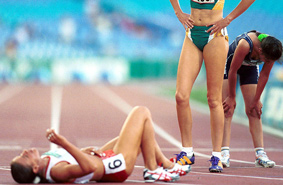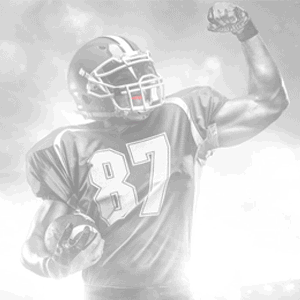How Does Taking A Break From Training Improve Your Team’s Performance?

 With the NCAA men’s and women’s basketball tournaments wrapping up earlier this week and the Frozen Four beginning tonight and ending on Saturday, the winter sports season has officially come to an end. That means it’s time for those same athletes who just competed at their highest level for weeks to hit the gym and start training all over again, right?
With the NCAA men’s and women’s basketball tournaments wrapping up earlier this week and the Frozen Four beginning tonight and ending on Saturday, the winter sports season has officially come to an end. That means it’s time for those same athletes who just competed at their highest level for weeks to hit the gym and start training all over again, right?
Actually, no!
While it may be hard for hyper-competitive athletes to take a break, it’s highly important for players to rest their bodies and minds after a long season — whether they just won the Final Four or lost their intramural ice hockey championship. However, that doesn’t necessarily mean they should stop being active altogether and become couch potatoes.
Simply trying something new may go a long way to helping your players recover during the offseason, while maintaining their physicality. Instead of putting in long hours at the gym, tell your team to go for a hike or play racquetball or try yoga. There’s a reason that NHL players pick up golf once the season ends and NFL players play pickup basketball in the spring.
In fact, jumping right back into a similar workout routine or training regime could actually be detrimental to an athlete’s future performance. As the body builds up fatigue over time, it needs rest to recover and shed that fatigue.
According to MensJournal.com, exercise physiologists have identified potential markers of the cumulative fatigue caused by long-term training — specifically, spikes in enzymes associated with inflammation and muscle damage. When an athlete’s body doesn’t fully recover from that built up fatigue, they are almost guaranteed to see their performance dip to a substandard level. And that’s the opposite of what training sets out to accomplish.
In order for your players to reach their optimal performance level, it’s important they understand the core truths of training and how not to overdo it. While it may appear that the more time an athlete puts into the gym, the better shape they’ll be in, it’s actually what the body does after the gym that counts.
Hard workouts elevate the heart rate, break down muscle fibers and stimulate certain hormones, like adrenaline. The body’s response to that stimulus — repairing tissue damage, strengthening the heart and other muscles — comes after the workout, when the body is at rest and has been replenished by nutrients. That’s the actual “getting fit” part of working out; the post-training recovery, when the body makes itself a little more efficient and stronger than before.
What you eat and how you rest after training has a major impact on how your body recovers. And an athlete’s body recovers differently to different levels of stimulus, which is why your players should switch up their routines during the offseason and try something new.
Much like how a custom mouthguard allows your players to breathe optimally, enhancing their performance, applying the right amount of stress to the body and letting it recover and adapt appropriately, helps athletes reach their optimal performance level over time.
And that means an improved performance next season.
Help your players improve their performance for next season with custom mouthguards from Gladiator, the industry-leader in custom mouthguards.






